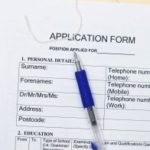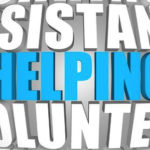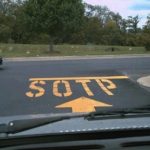In an economy where jobs seem hard to come by, it is so important that job seekers use proper interview follow-up techniques. Interviews are very important, no doubt, but when there are several very good candidates under consideration, how a candidate handles him/herself, after the job interview, should be carefully evaluated and considered.
Having worked in Human Resources for almost 15 years, I think I have seen it all, good and bad! Be very intentional about how you follow this process.
First of all, always send a thank you letter (email) right away. In the Internet era, this can and should be done rather quickly and not several days later. I was always impressed to see a well thought out thank you email submitted within hours of the job interview.
While I did appreciate the thank you letter that was sent via U.S. Mail, please refrain from using the small thank you card type – you know, the kind that you might send after someone attends your child’s birthday party. I am surprised by how many people use those little cards.
If this is a professional job interview, it would follow that your thank you letter should be typed in business format. Thank you letters sent via U.S. Mail are good and will help if the process is moving along at a normal pace. However, the process could be moving along at a very quick pace and if so, your thank you letter might not arrive in time. The process may have moved on without you in the few days your letter took to get there.
If a week goes by since your job interview and you have not heard anything, calling or sending another follow-up email is a good idea. However, I strongly advise against it if you were specifically told to not contact the company. Always follow instructions given to you.
If you make follow up calls after being told not to, it shows that you don’t have the basic skill of “following instructions”. People who can’t follow instructions seem to fall off the radar screen in a job interview process.
Should I call every day?
I have seen job seekers call or email every day and it’s not pretty. That method is simply overbearing and will lead people to believe you are desperate. Space out your communications. If you call or email as a follow-up and do not get a response, wait a few days or up to a week before checking in again.
Another must do item is to always do what you say you will do. This actually goes into play before you even have your job interview. For example, if your cover letter ends with “I will contact you within the week to set up an interview”, you need to do exactly that. Otherwise, why did you say it and not do it? That’s not exactly a trait they are looking for in their next employee.
Similarly, If you promise to send references or other items, do that within one day. It makes you look like you are on top of things and are a dependable candidate.
Do what you say you will do!
After your job interview, if you are asked to fill out paperwork, an application, or any other documents, do this immediately and do not wait more than one business day to submit it. I have seen candidates wait up to a week to send in paperwork. Remember, in every step of this process, the company is looking at you as a prospective employee.If you don’t send in the paperwork within a day then the company might look at this as an indication of your work style. Being reliable, dependable, and energetic is exactly what they are looking for so you need to exhibit those traits throughout the entire job interview process.
I had a candidate say he would fax me his references’ contact information on a Tuesday. Tuesday came and went and I did not receive it. He emailed me on Wednesday and said that he was unable to find the time to do it and asked if he could scan/email it to me that day. I did not receive them from him until Thursday. Quite honestly, if that was the case, he needed to call me and tell me that on Monday. He was a highly considered candidate who was eliminated from the process because of that one mistake.
The last critical item on the list is to return calls quickly. I have contacted job seekers to request additional information (or even to offer them the job) and have waited days before I heard back.
In cases where I had contacted the candidate to offer him/her the job and when he/she finally called back, I listened carefully as to whether or not this issue would be addressed. If it wasn’t or the excuse for not calling back sooner was inadequate, I didn’t offer the person the job. These type of things really matter!
If you follow these job interview follow-up tips, they will definitely help give you the edge over other job seekers. It is surprising how many people fall short in this area. If you want to get the job, you absolutely need to put your best foot forward and act like the employee they want to have throughout the entire job interview process.












If you want the job, you can t just sit back and wait for the job offer, so consider these key rules, guidelines, and strategies for following-up your job interviews.